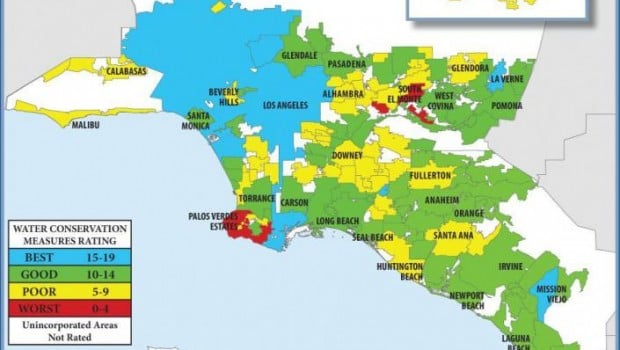
Published on September 9th, 2013 | by Travis Korte, Center for Data Innovation
This July, the California Supreme Court ruled that geographical information system (GIS) data counts as public record in the State of California, meaning that it must be available to the public without a licensing fee under the State’s Freedom of Information Act. The decision followed a protracted legal battle between the Sierra Club, which wanted access to a taxpayer-funded database of land parcel map files at zero or nominal cost, and California’s Orange County, which offered the files for a $375,000 licensing fee.
GIS technologies, which have broad applications in transportation planning, public health, law enforcement, socioeconomic research and other public and private sector fields, can be used to represent and manipulate geographical data. Developed for computer mapping applications starting in the 1960s, GIS allows spatial features to be integrated into data analysis. Government agencies often maintain multi-purpose GIS files depicting geographical features in a particular jurisdiction, which serve as the base for various geospatial analyses. Although sometimes costly to produce and maintain, GIS data is highly valuable for internal government use, and has increasingly been made publicly available at state and federal levels for its applications in the private and nonprofit sectors.
The Sierra Club argued that the files in the database were merely data, stored in mapping company Esri’s proprietary shapefile format. Even though software is necessary to display the contents of shapefiles, the Sierra Club argued, they are not, in themselves, programs. While in some cases the line between programs and data is indistinct, the County agreed in this case that the database “does not contain programs, routines, and symbolic languages that control the functioning of computer hardware and direct its operation.” Instead, the County argued that the files in the database should be considered software because a narrow interpretation of the clause in the California Public Records Act specifying “computer mapping systems” as software could also include shapefiles. This would justify the fee, as the County is allowed to charge fees to recoup some of the development and maintenance costs of software. The GIS database, which is updated daily, cost $3 million to maintain from 2003-2008, according to a 2009 declaration from the County.
The California Supreme Court ruled that the GIS database is a public record that must be provided publicly at the cost of duplication, but the state of taxpayer-funded GIS data varies widely, at state and municipal levels.
Some jurisdictions have been proactive in releasing GIS data at nominal or no cost. New York City’s recent PLUTO (Primary Land Use Tax Lot Output) data release, which presents detailed and machine readable information on every land parcel in the city, has set a new standard for quality in municipal GIS releases. This dataset includes characteristics of every tax parcel in the City of New York and is available to the public in the universally used comma-separated value (CSV) format, at no cost.
Other states charge for GIS data. In Mississippi and Tennessee, public entities can consider the “commercial value” of GIS data in setting a price for it. The State of Georgia carries a statute which states that any fees “shall be based upon the recovery of the actual development cost of creating or providing the geographic information system and upon the recovery of a reasonable portion of the costs associated with building and maintaining the geographic information system.” Finally others may not charge for the data, but instead put restrictions on its use. In North Carolina, for example, cities or counties can require that individuals will not use or resale GIS data for commercial purposes.
Unfortunately many of these state and local laws on GIS data are decades old and have not been updated in years. Lawmakers should take a fresh look at GIS policies to ensure that their data pricing and use policies enable, rather than restrict, data-driven innovation.
About the Author
Travis Korte Travis Korte is a research analyst at the Center for Data Innovation specializing in data science applications and open data. He has a background in journalism, computer science and statistics. Prior to joining the Center for Data Innovation, he launched the Science vertical of The Huffington Post and served as its Associate Editor, covering a wide range of science and technology topics. He has worked on data science projects with HuffPost and other organizations. Before this, he graduated with highest honors from the University of California, Berkeley, having studied critical theory and completed coursework in computer science and economics. His research interests are in computational social science and using data to engage with complex social systems.








0 comments:
Post a Comment